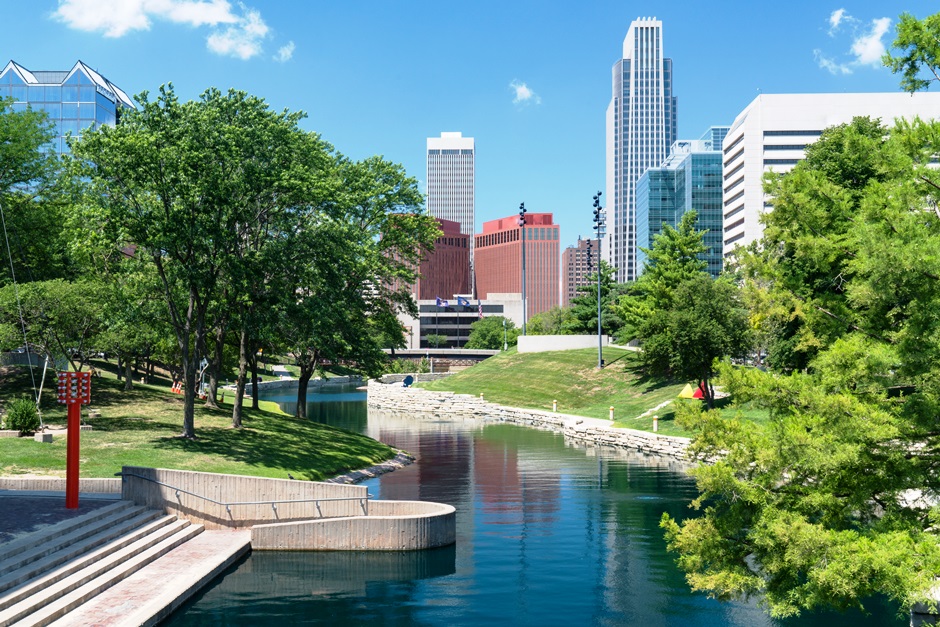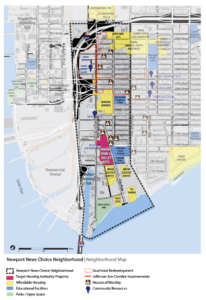On May 13, 2019, the U.S. Housing and Urban Development (HUD) announced that two cities in Virginia and one in Nebraska will receive a combined $85 million to redevelop severely distressed public or assisted housing, and to revitalize the surrounding neighborhoods.
Provided through HUD’s Choice Neighborhoods Initiative, these grants—and the more than $620 million they hope to stimulate from other sources—will help transform long-struggling neighborhoods and distressed HUD-assisted housing.
The following communities are selected to receive Choice Neighborhoods grants to implement their neighborhood transformation plans:
- Newport News, Virginia’s (Newport News Redevelopment and Housing Authority) Marshall – Ridley Neighborhood will get $30,000,000;
- Norfolk, Virginia’s (Norfolk Redevelopment and Housing Authority) St. Paul’s Area will get $30,000,000;
- Omaha, Nebraska’s (Omaha Housing Authority) North 30th Street Corridor will get $25,000,000.
“HUD’s work is about more than just housing those in need, we also have a responsibility to help create thriving communities where residents can grow and flourish,” said HUD Secretary Ben Carson. “The grants we are announcing today will leverage additional funds to revitalize entire neighborhoods and create more opportunities for those who live there.”
HUD’s Choice Neighborhoods Initiative leverages significant public and private dollars to support locally driven strategies that address struggling neighborhoods with distressed public or HUD-assisted housing through a comprehensive approach to neighborhood transformation.
Local leaders, residents, and stakeholders, such as public housing authorities, cities, schools, police, business owners, nonprofits, and private developers, come together to create and implement a plan that revitalizes distressed HUD housing and addresses the challenges in the surrounding neighborhood.
The program helps communities transform neighborhoods by revitalizing severely distressed public and/or assisted housing and catalyzing critical improvements in the neighborhood, including vacant property, housing, businesses, services and schools.
The Choice Neighborhoods program focuses on three core goals:
- Housing: Replace distressed public and assisted housing with high-quality mixed-income housing that is well-managed and responsive to the needs of the surrounding neighborhood;
- People: Improve outcomes of households living in the target housing related to employment and income, health, and children’s education; and
- Neighborhood: Create the conditions necessary for public and private reinvestment in distressed neighborhoods to offer the kinds of amenities and assets, including safety, good schools, and commercial activity, that are important to families’ choices about their community.
Together, the selected awardees are proposing to replace 988 distressed public housing units with 1,730 new mixed-income, mixed-use housing units as part of an overall effort to revitalize neighborhoods. For every $1 in Choice Neighborhoods funding they receive, the awardees and their partners will leverage an additional $7.30 in public and private funding for their project proposals.
Together, these three communities are leveraging an initial $620.5 million through other public/private sources to magnify their impact. In addition to the funds being awarded today, HUD will award an additional $30 million later in the year to Baton Rouge if mutually agreed upon changes are made.
The Choice Neighborhoods Program builds on the successes of HUD’s HOPE VI Program, linking housing improvements with a wide variety of public services and neighborhood improvements to create neighborhoods of opportunity. Choice Neighborhoods is HUD’s signature place-based program, which supports innovative and inclusive strategies that bring public and private partners together to help break the cycle of intergenerational poverty.
Photo of Omaha, Nebraska via Adobe Stock.
Read more about those three communities’ transformation plans.


